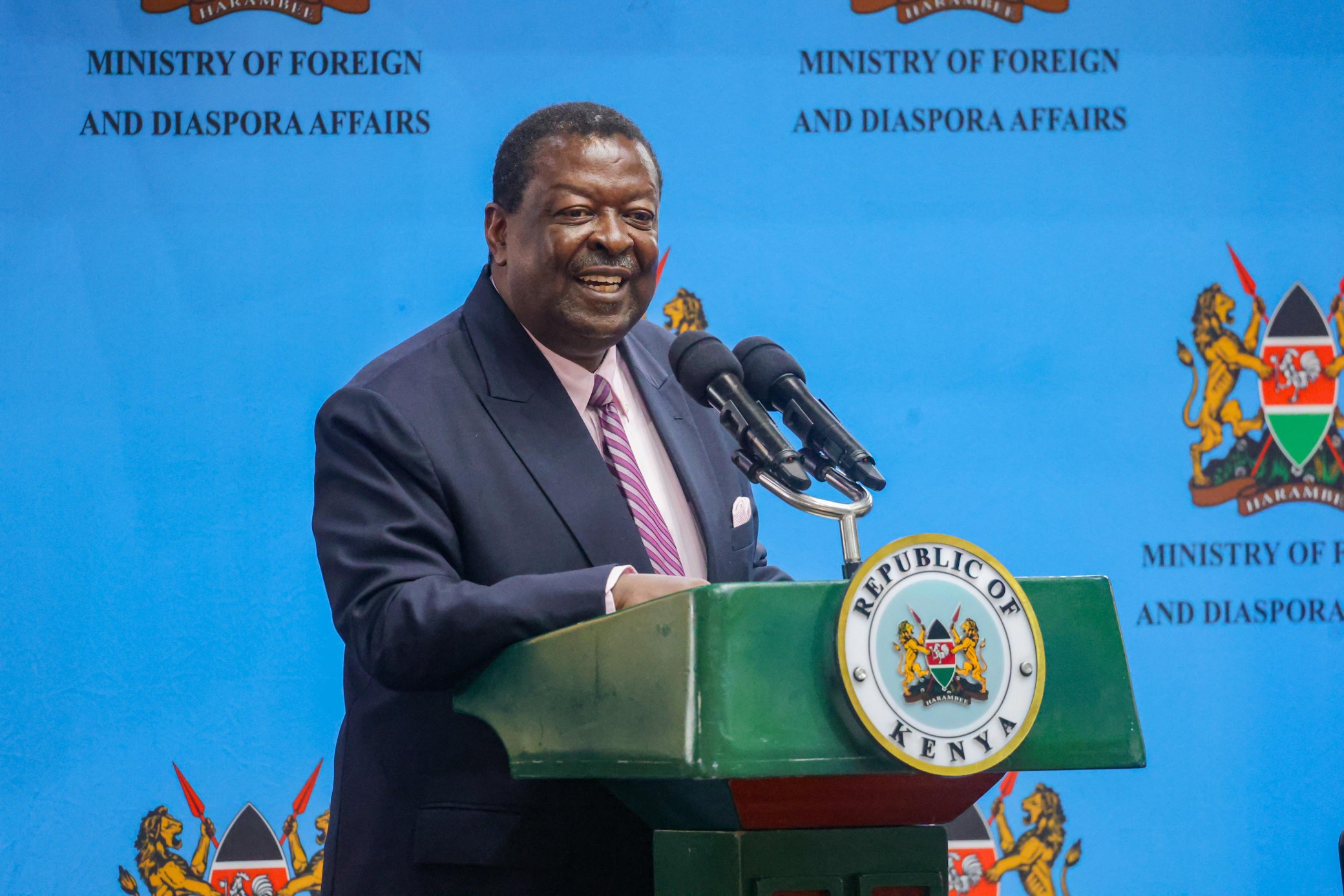The government has emphasized that Kenya’s Foreign Policy 2024 must uphold diplomatic integrity and adapt to the evolving global geopolitical landscape and pressing diplomatic realities.
Prime Cabinet Secretary Musalia Mudavadi stated on Monday that the policy will allow no room for inconsistency, asserting it must be a fit-for-purpose document as the nation redefines its approach to global diplomatic engagements.
Mudavadi underscored that the revised policy is pivotal in reshaping Kenya’s international position, and ongoing stakeholder consultations should produce a document reflecting the aspirations of all citizens.
“We have chosen to break from the past and adopt a forward-looking perspective, taking foreign policy to the people to ensure Kenyans are involved in our diplomatic engagements. The goal is to pull together for a common purpose as a nation,” said Mudavadi.
“The ultimate aim of a country’s foreign policy is to provide a blueprint for achieving national interests while fostering shared prosperity. The Kenyan public plays a frontline role in formulating and implementing this policy, which is why we are all gathered here today,” he added.
Mudavadi, who also serves as the Cabinet Secretary for Foreign and Diaspora Affairs, spoke during a public stakeholders’ validation forum at the Kenyatta International Convention Centre (KICC). The forum is part of the review process, which is nearing completion.
The validation exercise paved the way for final public input before a high-level retreat with President William Ruto to finalize the policy ahead of its official launch in early December.
“Public participation is a fundamental principle of Kenya’s democratic governance, enshrined in the Constitution. A foreign policy’s ultimate success lies in reflecting the aspirations of its citizens through an inclusive, all-of-society approach,” Mudavadi noted.
The ministry has conducted numerous consultations with stakeholders, including government entities, civil society organizations, academics, ambassadors, county governors, parliamentarians, youth, and the judiciary.
Mudavadi stressed that the 2024 policy must be citizen-centered, as sovereignty rests with the people. He emphasized the importance of bridging the gap between foreign policy and public understanding of Kenya’s international affairs.
“How can we use foreign policy to instill patriotism and encourage citizens to positively project Kenya’s image on the global stage?” he asked, calling for mechanisms to foster public engagement.
Mudavadi further stated that the validation process would strengthen the ministry’s ability to engage Parliament, which plays a crucial role in ensuring the policy is comprehensive, coherent, and contextually relevant.
“The pursuit of national interests abroad comes with operational costs. Therefore, the Sessional Paper will highlight the cost implications of foreign policy implementation to Parliament. The increasing returns from Kenya’s diplomatic engagements justify the need for greater budgetary support for the Ministry of Foreign and Diaspora Affairs,” he noted.
Mudavadi highlighted President Ruto’s leadership in diplomacy, citing the signing of beneficial agreements that have expanded trade, diversified the creative economy, and secured labour mobility deals to tackle youth unemployment.
He emphasized that a robust foreign policy framework is essential for attracting foreign direct investment and positioning Kenya as a regional economic hub.
“Our country has seen increased public-private partnerships, infrastructure development, and international engagements that boost tourism, peace, and security. These achievements underline the importance of crafting a policy that will stand the test of time,” he said.
The overarching goal of the policy is to elevate Kenya’s role as a regional leader and advocate for Africa’s interests globally.
It will aim to protect Kenya’s sovereignty, promote regional integration, advance economic prosperity, and position Nairobi as a global hub for diplomacy.
The policy will focus on eight pillars: Economic and Commercial Diplomacy, Sustainable Oceans Diplomacy, Global Governance, Environment and Climate Change Diplomacy, Science and Innovation Diplomacy, Diaspora Diplomacy, and Socio-Cultural Diplomacy.
Kenya’s Foreign Policy 2024 also recognizes new dimensions in diplomacy, including the roles of Parliament, media, judiciary, and county governments, ensuring a holistic approach to its global engagements.





